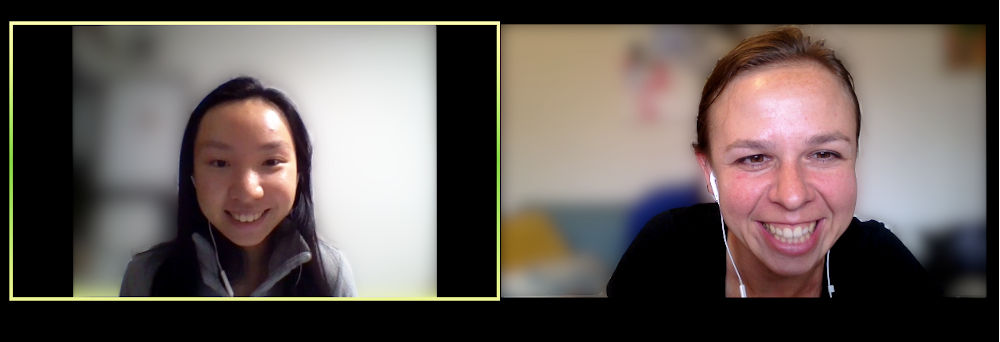
Sharon got in touch with me in May 2020 via the UNSW Mentorship platform that was launched the same year. She and I had a lot in common instantly: I completed the Graduate Diploma in Education (Secondary) in 2015, she is in the process of studying for the Masters of Teaching (Secondary) now. I was banging my head against the wall trying to figure out how to stay in Australia with my partner, family and friends throughout 2013-2016, she has been navigating similar challenges in 2020. She has a lot of questions about professional practicums in Australian high schools as part of initial teacher training, I had similar questions in 2015.
Throughout our sessions we have covered:
Going through the initiation into a teaching profession: the first two placements at schools.
- How to interpret Australian Professional Standards for Teachers in order to collect the required evidence during professional practice at school?
- How to take a critical stance on the Standards and think about them as a set of guidelines that could be further improved? It’s our professional duty to make a contribution into how student teachers are assessed, and what characteristics and behaviours constitute a well-prepared teacher who can work with children and their parents.
- What to expect in a report written by a supervising teacher at the end of a professional placement?
- How to communicate effectively with all members of the school eco system: head teachers, classroom teacher, and administrators? How to practise finding answers to your questions in a timely manner without overthinking and being overly self-reliant? As a new teacher, we have questions that already have answers. It’s wise to learn from the experience of other teachers who are often keen to share. Our questions need to be brief and specific, so that our colleague teachers could give us precise advice and recommendation as there is very little spare time at schools.
- How can a teacher maintain her authentic self while facing students with challenging behaviour? How to resist making instant judgements and instead take time to understand the reasons for such behaviour and where it fits within a larger social and cultural context?
- How to have a change-maker mindset in a classroom setting? Every problematic situation has a solution and through collaboration with other teachers, these solutions can be found and applied.
- How to make science lessons engaging by addressing students’ kinaesthetic needs? Theoretical and practical scientific exploration can take a form of a jigsaw activity that helps the teacher to create scaffolded tasks that encourage teamwork.
- How to design a science lesson based on a Youtube video that can inspire students to create something of their own? Videos can have power to entice young learners to imitate the technique or process shown.
Practising resilience, patience and creativity: habits required to settle in a new country
- How to think strategically and realistically about complex and constantly changing immigration law in Australia and how to draft an achievable roadmap?
- What are the requirements for successfully passing the Credentialed Community Language Test (CCL) and how to prepare for it? Where to find a tutor who would give practical tips for the test and would be able to assess the candidate’s current level of interpretation skills? We tried reaching out to NAATI registered interpreters who specialised in Cantonese to English, but couldn’t find anyone who could help. We also wrote to several AUSIT registered interpreters, but the result was the same. I recommended Sharon to reach out to Sydney Language Solutions that run courses to prepare for CCL and NAATI tests. Sharon quickly found a tutor who was able to help with CCL preparations. After practising diligently her interpretations skills with the tutor and independently, she successfully passed CCL Test, which gave her 5 points.
- How to make a jump from C1 level writing in English into a near-native C2 level? A magical word is “collocations”. How to use the combinations of words that are natural to the English language? How to emotionally detach from your own writing to scrutinise every word bit by bit to improve sentence structure and flow?
Over the course of our three-month discussion, Sharon and I came up with strategies that can support us in our personal and professional lives. Through regular practice of externalising my thoughts about teaching, learning and immigration, I developed a vocabulary to talk about complex issues.
We make decisions on a daily basis, and it’s a real gift to have an opportunity to share this decision making process with someone who can benefit from it. While communicating with Sharon, I was able to zoom out on some sections of my life and conceptualise them, put them into a larger context, which helped me to make sense of seemingly chaotic situations.
Sharing is caring